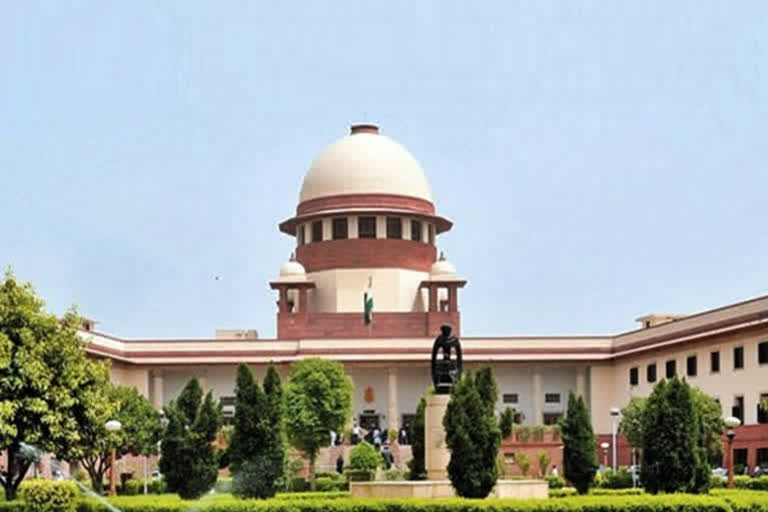New Delhi: The Supreme Court Tuesday sought response from the Centre on a plea seeking transfer of two petitions from the high courts of Delhi and Rajasthan to it on the issue of 'Uniform Minimum Age of Marriage for Men and Women' to so as to avoid 'multiplicity of litigations and conflicting views'.
The bench headed by Chief Justice S A Bobde took note of the submissions of senior advocate Geeta Luthra, appearing for lawyer and BJP leader Ashwini Upadhyay, that similar pleas are pending in the two high courts and they be transferred to the apex court for an authoritative pronouncement on the issue.
'Issue notice,' said the bench which also comprised Justices A S Bopanna and V Ramasubramanian in the proceedings conducted through video conferencing. After the transfer of the petitions from the the high courts, it can be tagged with other two pending PILs in the apex court in which uniform grounds of divorce, maintenance, alimony, adoption and guardianship have been sought to be implemented, said Luthra who was assisting by lawyer Priya Hingorani. In October last year the plea seeking transfer of PILs from Delhi and Rajasthan High Courts were filed. The Delhi High Court had in August, 2019 issued notice to the Centre and the Law Commission of India on BJP leader and lawyer Ashwini Upadhyay's plea seeking uniform marriage age for men and women.
On February 5, last year the Rajasthan High Court sought response from the Centre and others on a similar PIL filed by one Abdul Mannan.
The transfer plea, filed through Ashwani Kumar Dubey, has sought an authoritative pronouncement from the top court itself to avoid multiplicity of litigation.
The plea has sought to 'gender justice, gender equality and dignity of women'.
READ: Plea seeks amendment to PMJDY, HC issues directions
Currently various laws state that minimum age for getting married should be 18 in case of women and 21 for men, it said. 'Petitioner is compelled to approach this Court as more PILs may be filed in other High Courts seeking 'Uniform Minimum Age of Marriage for Men and Women'. Therefore, in order to avoid multiplicity of the litigations and conflicting views on interpretation of Articles 14, 15, 21 and judgments on gender justice and gender equality, the Court may be pleased to transfer these PILs and decide them collectively,' said the transfer plea filed under Article 139A of the Constitution.
Alternatively, the plea has sought a direction to the Centre to take appropriate steps to remove the anomalies in the minimum age of marriage and make it 'gender neutral, religion neutral and uniform for all citizens' in spirit of the fundamental rights of equality and right to life and International conventions.
'Alternatively, being custodian of the Constitution and protector of the fundamental rights, declare that the discriminatory minimum age of marriage offends Articles 14, 15, 21 and international conventions. Hence, minimum age of marriage shall be 21 years for all citizens,' it said.
